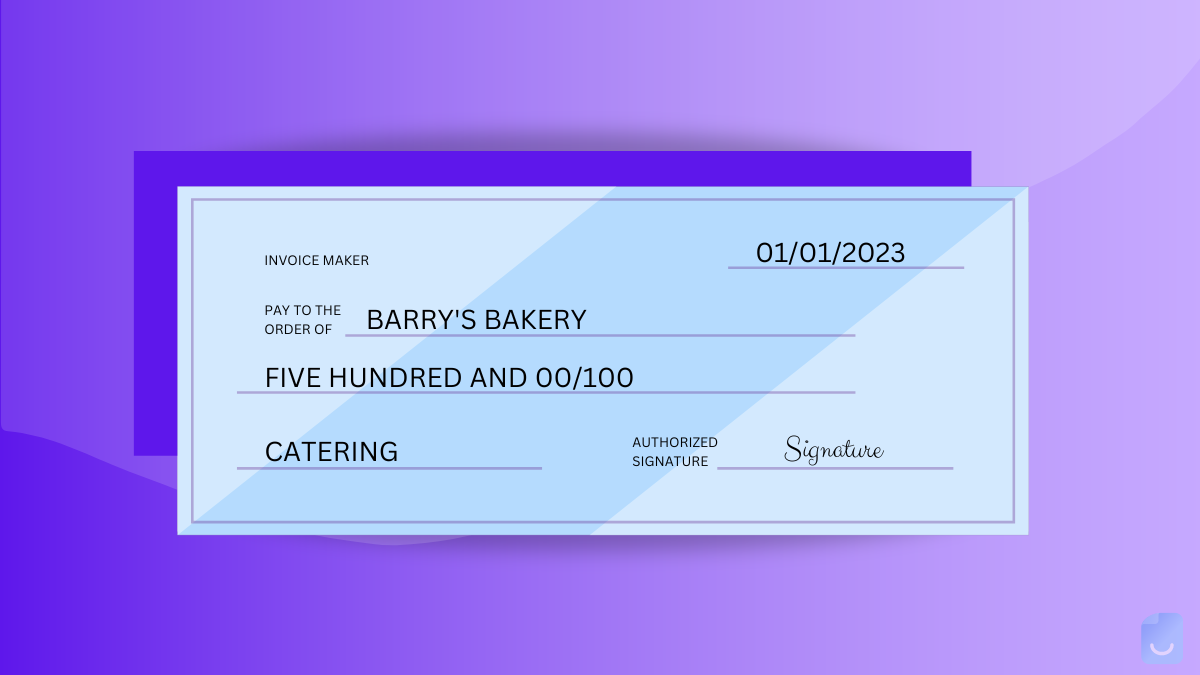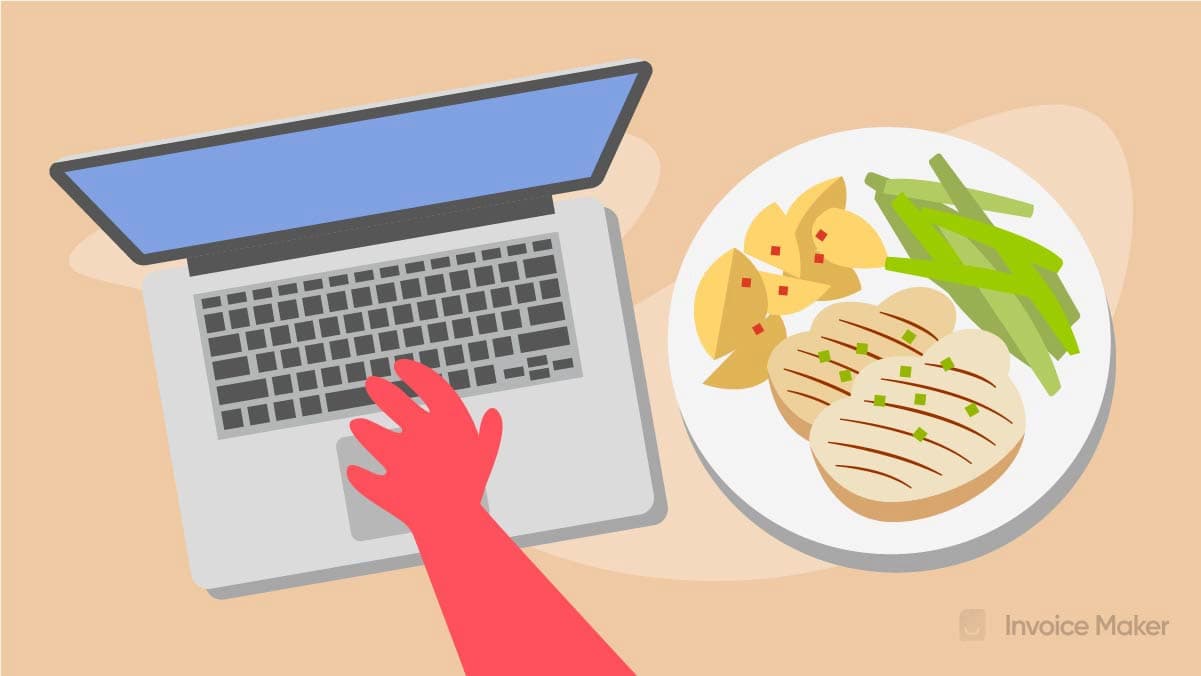Best Business Checking Account for LLCs

An LLC, or limited liability company, is a popular business structure for freelancers and small businesses. Forming an LLC—even if you are your business’s only employee—protects you from being held personally responsible for your business’s debts and liabilities. As a sole proprietor that is not an LLC, your personal assets (like the house you live in and the car you drive) are potentially vulnerable in the event you, say, get sued by a client. Forming an LLC is smart, relatively simple, and generally a good business practice.
Make a Free Invoice NowOnce you form an LLC, you’ll need to do some financial and administrative upkeep to keep your personal and business assets separate, and having a business bank account is key for maintaining this separation. If you’re not sure how to choose a business checking account, check out some popular options below.
Features to Look For in a Business Checking Account
You might be thinking, I already have a checking account…how hard can this be? And you’re not totally wrong, but what you want to look for in a business checking account is a little more complex than your basic personal account. You’ll likely be utilizing the account in a different way and relying on different perks and services. Here are some questions and features to consider as you compare options.
- Is there a per-transaction fee? Is there a limit to the number of transactions you can initiate in a given day, week, or month? This is relevant if you have a high volume of transactions, in which case you’ll want to look for an account that doesn’t charge these fees.
- What kinds of payments can you make? Can your clients pay you via credit card? Are there any fees for different types of payments?
- Convenience: this one is easy to overlook, but if having a physical bank to go to is important to you (and if you’re dealing in cash, it will be), consider how close to your home or office the closest branch is.
- What is the minimum balance you must maintain without incurring fees? Are there any bonus benefits available for opening deposits in the amount you’ll be starting with?
- Will your account earn interest? At what rate? And if so, are the fees associated with the interest-bearing account worthwhile for your balance?
- Are there ATM fees for cash withdrawals? Fees for overdraft protection?
- How serviceable is the bank’s mobile app? How good is their customer service?
How to Open a Business Checking Account
Once you’ve decided where you want to open your business checking account, it’s time to gather your paperwork. The exact documentation requirements vary from state to state, but generally you will need the following:
- The name and address of your business
- Your EIN number (or your SSN if you’re a sole proprietor) and DOB
- The date your business was established and the country and state in which it was established
- The country and state of your primary business operation
Sometimes, a banking institution will request more documents, including:
- Articles of Organization, Certificate of Organization, or Certificate of Formation
- Business License or Occasional Tax License
- Trade Name Certificate
- Fictitious Name Certificate (also known as a DBA)
- Occupational License
Depending on your needs and circumstances, you can open a business checking account in person with a banker, or online. Whichever option you decide on, your first move will be to submit an application online, or to walk in or make an appointment at the bank. It’s smart to have all your paperwork in order before doing that, so you can avoid back-and-forth. Then, you’ll turn over all your documents and make arrangements for transferring your initial deposit.
Make sure you know what you need—do you want checks and/or debit cards in your business’s name? Will your name be the only one on them, or do you need checks and/or cards for your partner or employees as well? Showing up prepared will limit the amount of circling back you’ll have to do.
Best Business Bank Account Options
When you’re shopping around for the best place to do your business banking, your two categories to choose from are (1) traditional banks with both brick-and-mortar locations and online services, and (2) app-based virtual financial services.
There are pros and cons to both, so it’s a good idea to consider your priorities and what your specific business logistics look like. For example, if you handle a lot of cash but keep a low balance, you’ll have different needs than another business that only deals in online payments but always maintains a sizeable balance. Here are some of our top picks in both categories.
Traditional Banks
Known, trusted, and physically accessible, traditional banking is tried and true. That said, traditional banking often has a lot of redundancy for small businesses, and you can end up paying for services and scale that you’ll never use.
- Chase Business Complete Banking has three tiers of service. Most small businesses will be best suited by the lowest-tier Complete Checking option, which offers unlimited electronic deposits, integrated credit card processing, and a potential $300 sign-up bonus, plus access to thousands of Chase ATMs and branches. For that service, you’ll pay $15 monthly. Note that to stay deposit fee-free, you’re limited to twenty physical transactions and $5k in cash deposits per month, and that overdraft fees are steep.
- American Express Business Checking offers lots of fee freedom: no monthly fees, no minimum opening deposit, no transaction fees (or limits), and no overdraft fees. AmEx has excellent 24/7 support, and your account will earn 1.1% annual percentage yield (APY) on balances up to half a million dollars. The big downside of this account is that you can’t deposit cash—which is a nonissue for some small businesses, and a dealbreaker for others. Also worth noting is that the AmEx mobile app only works on iPhone.
- Bank of America Business Fundamentals Banking charges $16 a month but waives that fee (and gives you a $200 signing bonus) if you keep a $5k minimum balance. You can open an account without hitting an opening minimum, and you have access to the BOA suite of small business specialists, as well as seamless Zelle integration.
- Wells Fargo Initiate Business Checking Account allows you to open an account online without ever visiting a branch. WF has the largest number of branches of any bank in the US, and charges $10 monthly but waives that fee if you keep a balance of just $500. As a business account holder, you can access all the Wells Fargo business banking services, which is their best selling point.
Online Banks
Virtual, app-based banks seem to be the way of the future, streamlining the banking experience into a few clicks. Low-touch and high on automation, virtual banking can be an excellent option if you don’t need much handholding and really just want a safe place to park your money. All of the following (and any that you should consider) are FDIC-insured, meaning that your money is insured in the event of a bank crisis. The big downside to online-only banks is the lack of a branch to go into if you need help or services like making change for your cash register.
- Lilli charges no fees and has no minimum balance requirements. Designed for sole proprietors and single-member LLCs, Lilli handles credit card payments, sets you up with a business debit card, and offers a generous 1.5% APY on business savings.
- Bluevine is proudly fee-free and offers unlimited transactions, no minimum balance requirements, and potential for earning 1.5% APY on your balance (up to $100k). If you keep a large cash reserve and want to go with an online bank, Bluevine is a smart option for making returns on your balance.
- Novo doesn’t charge any fees, and it also gives you unlimited reimbursement for ATM charges, which can be big if you or your employees often need to get cash on the go. Novo offers integrated perks with a huge list of affiliated apps, including Stripe, QuickBooks, Google Ads, Snapchat, and more.
- Found Small Business Banking is a sleek, streamlined banking service just for small business owners. App-based, with no fees, no minimums, and no credit checks, Found is the epitome of the new wave of banking services. With Found, you get bookkeeping tools like P&L statements, receipt logs, and expense and income reports and tracking, tax services like auto-withholding, free invoices, and much more—a truly one-stop shop.
Keep Your Personal and Business Banking Completely Separated
Maintaining an LLC and a business checking account protects you — the individual — from anything that should happen to you — the business. The freelance life blurs a lot of boundaries between work and not-work, and making a clear line between them with your finances is a step toward increased professionalization and better work/life boundaries.
Business banking is also hugely helpful in truly separating your personal and business expenses, which will make your life much easier during tax season. While initially establishing your account may be tedious, the financial freedom and legal security it will provide you is unquestionably worthwhile.


